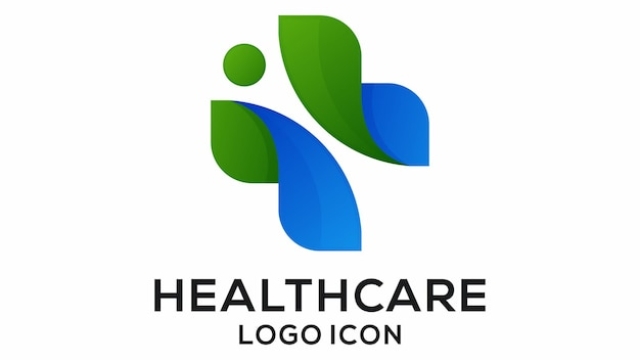![]()
The landscape of clinical research is evolving at a remarkable pace, and Clinical Research Associates play a crucial role in this transformation. As the bridge between the research teams and regulatory agencies, these professionals are integral in ensuring that clinical trials are conducted ethically and effectively. With advancements in technology and an increasing focus on patient-centric approaches, the future of clinical research presents both exciting opportunities and unique challenges for associates in the field.
As we look ahead, several trends are emerging that will shape the work of Clinical Research Associates. From the integration of artificial intelligence in data analysis to the rise of remote monitoring and decentralized trials, these changes are poised to revolutionize how clinical research is conducted. Staying informed about these trends is essential for associates who want to remain competitive and contribute to the success of their organizations in this dynamic environment.
Emerging Technologies in Clinical Trials
The landscape of clinical trials is being transformed by various emerging technologies that enhance efficiency and data accuracy. One significant advancement is the integration of artificial intelligence and machine learning in trial designs and patient recruitment. These technologies can analyze vast amounts of data to identify suitable participants, predict outcomes, and even optimize trial logistics. This capability not only accelerates the recruitment process but also helps in designing trials that are more likely to succeed.
Another notable trend is the use of remote monitoring and telemedicine. With the rise of digital health tools, Clinical Research Associates are now able to monitor patients in real-time from any location. This shift facilitates greater patient engagement and adherence, as participants can conduct visits from their homes and provide data remotely. These technologies enable researchers to gather more comprehensive and continuous data while improving the overall participant experience.
Moreover, blockchain technology is gaining traction for its ability to secure and streamline data management. By ensuring data integrity and transparency, blockchain can facilitate trust among stakeholders in the clinical research process. This technology can help address concerns regarding data ownership and verification, allowing Clinical Research Associates to focus on enhancing the quality of the research itself rather than getting bogged down by administrative burdens. As these technologies continue to evolve, they will have a profound impact on the future of clinical trials.
Get Started
Regulatory Changes Impacting Research
The landscape of clinical research is continually shaped by evolving regulations, and Clinical Research Associates must stay informed about these changes to ensure compliance and best practices. Recent updates from regulatory bodies, such as the FDA and EMA, focus on streamlining processes to enhance efficiency and patient safety. As sponsors and sites navigate these new guidelines, CRAs play a critical role in implementing them throughout the study lifecycle, which can influence study timelines and operational strategies.
Another significant aspect of regulatory changes is the increased emphasis on data transparency and integrity. Agencies are pushing for more robust reporting requirements and real-time data sharing among stakeholders. This shift not only affects how studies are conducted but also elevates the responsibilities of CRAs in maintaining accurate documentation and adherence to protocols. Understanding these requirements allows CRAs to lead by example, fostering a culture of compliance that benefits all parties involved.
Additionally, regulatory authorities are embracing technology-driven solutions. The rise of digital tools, remote monitoring, and decentralized trials represents a major shift in how clinical research is conducted. CRAs must adapt to these innovative methods, ensuring they are proficient in new technologies that facilitate compliance and data collection. As these trends continue to evolve, CRAs will need to be proactive in their education and training, positioning themselves to effectively manage the challenges and opportunities that come with regulatory changes.
Skills for the Future Clinical Research Associate
As the landscape of clinical research evolves, the role of the Clinical Research Associate (CRA) is becoming increasingly multifaceted. One key skill that will be essential is adaptability. CRAs will need to navigate new regulations, technologies, and methodologies as they emerge. This flexibility will allow them to quickly incorporate innovative approaches into their work, whether it’s adapting to remote monitoring techniques or utilizing new data analysis tools. Emphasizing a willingness to embrace change will be critical for CRAs who want to stay relevant and effective in their roles.
In addition to adaptability, strong communication skills are crucial for future CRAs. With the growing emphasis on collaboration among multidisciplinary teams, the ability to convey complex information clearly and concisely will be more important than ever. This includes not only communicating findings effectively to stakeholders but also ensuring that protocols and ethical guidelines are understood and followed by all team members. Proficient interpersonal skills will help CRAs build rapport with investigators, patients, and sponsors, fostering a cooperative environment essential for successful clinical trials.
Lastly, a solid understanding of data management and analytical skills will increasingly distinguish successful CRAs. As clinical trials become more data-driven, CRAs must be comfortable working with statistical software and electronic data capture systems. Knowledge of data integrity, security, and analysis methodologies will empower CRAs to better assess trial outcomes and ensure compliance with industry standards. By focusing on these technical skills alongside core competencies, future CRAs will be well-equipped to contribute to the progress and success of clinical research.
